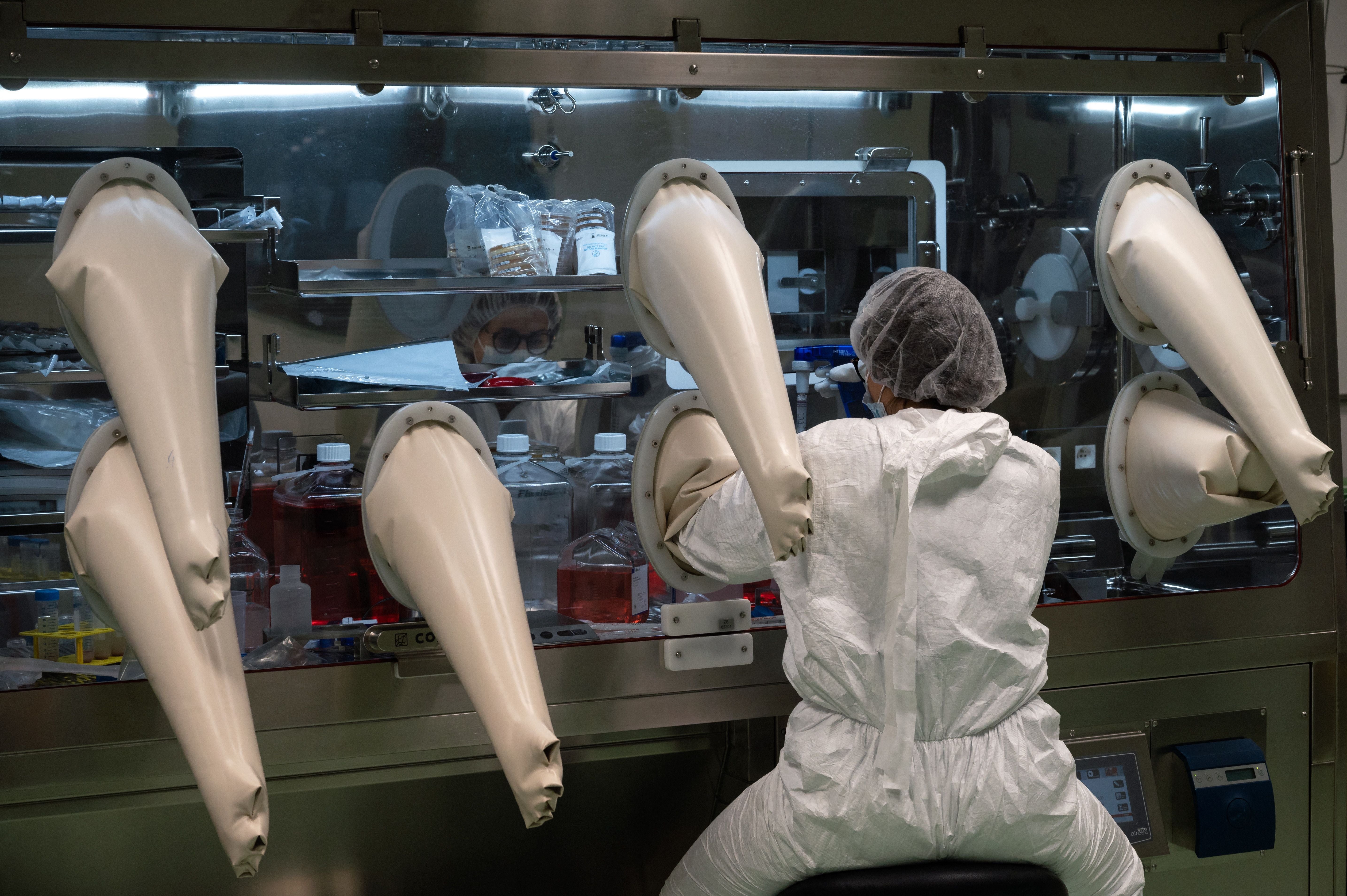The Independent's journalism is supported by our readers. When you purchase through links on our site, we may earn commission.
Cancer vaccine similar to Covid jab produces ‘really hopeful’ results
Vaccine is tailor-made for each patient with DNA found in their tumours

A personalised cancer vaccine that uses similar technology to the Covid jabs has produced “really hopeful” early results, researchers say.
The vaccine was given to eight head and neck cancer patients at the NHS’ Clatterbridge Cancer Centre after they had received standard treatment. None of the patients went on to relapse several months later.
However, two patients in a control group who didn’t receive the vaccine saw their cancer return.
Professor Christian Ottensmeier, a consultant medical oncologist and director of clinical research at the centre, told Sky News he was “cautiously optimistic” about the findings.
“I am really hopeful, yes,” he said. “I am quite excited about it. All the data are pointing in the right direction.”
The jab, codenamed TG4050, is made by a French company called Transgene using similar technology that produced AstraZeneca and Oxford University’s Covid vaccine.
The vaccine is tailor-made for each patient with DNA found in their tumours. After being injected, the body is instructed to create proteins identical to those found on the surface of the tumours, triggering an immune response.
In theory, any cancer cells displaying those same surface proteins that remain in the bloodstream after surgery are then destroyed by T cells, preventing the cancer from gaining a foothold.
“The immune system can see things we can't see on scans,” Prof Ottensmeier told Sky News. “It's much smarter than human beings.
“If we can train the immune system to pick those cells that would otherwise lead to a relapse at a time when we can't even see them, then the long-term survival chances for our patients are much higher.”
Thirty patients are taking part in the trial for head and neck cancer. Half will be given the vaccine as soon as they finish conventional treatment, with the other half receiving it only when they relapse.
Head and neck cancers are newly diagnosed in more than 12,000 people in the UK each year, and 65,000 in the US. They kill just over 4,000 Britons a year and 14,000 Americans.
There are more than 30 areas within the head and neck where cancer can develop, including the mouth and throat. These types of cancer patients have a high chance of their tumour returning.
Doctors are optimistic about the vaccine because it is so specific to each individual person's cancer. Transgene's chief medical officer Dr Maud Brandely said it provided patients with “new hope” in the race to treat cancer.
However, Dr Juanita Lopez, a clinical researcher at The Institute of Cancer Research, cautioned that the “highly personalised” vaccination strategy is time intensive and complex, taking around four weeks to generate a vaccine for just one patient.
It’s also “hugely expensive,” she says, which raises the question of whether such a treatment could feasibly be provided via the NHS.
Subscribe to Independent Premium to bookmark this article
Want to bookmark your favourite articles and stories to read or reference later? Start your Independent Premium subscription today.

Join our commenting forum
Join thought-provoking conversations, follow other Independent readers and see their replies